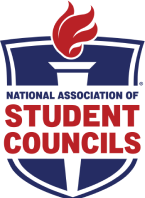Twenty-two million kids rely on free and reduced-price meals. Up until recently, 1 in 7 lived in a household without consistent access to food—and that number is estimated to now be 1 in 4 as a result of COVID-19. Hunger in children can lead to stress, malnourishment, and poor mental health—impacting academic performance and progress.
The National Association of Secondary School Principals (NASSP), parent organization of NatStuCo, has partnered with the No Kid Hungry campaign to launch the new national initiative to combat food insecurity in America’s children. In collaboration with Share Our Strength and the Student Leadership Advisory Committee, NASSP has provided a number of ways your student council can get involved to effect lasting change. Encourage your students to grow their leadership and be active members of their community as they help put an end to childhood hunger once and for all.
Lift Up
Student council members can leverage their own digital and social networks to raise awareness on the issue of childhood hunger and food insecurity. Share Our Strength offers national data as well as social media templates—just plug in local statistics and import to your social channels! And be sure to join the #ThankAHungerHero celebration by highlighting school nutrition staff during Teacher Appreciation Week, National School Breakfast Week, or another staff appreciation event at your school.
Speak Up
Students can reach out for meetings or calls with their principal, superintendent, state legislature, federal officials, etc., to encourage awareness and action on childhood hunger in their district. Encourage students to write letters to those stakeholders in their local community. Share Our Strength can provide letter templates and sample language to help students prepare their calls and promote advocacy at their school.

Stand Up
Students are encouraged to take action through local volunteer opportunities as well. Find local programs in your community, from backpack programs to summer meals and after-school meals, where your student council’s efforts will be most appreciated. Students can also conduct an evaluation of their district/campus-level school meals program participation and create action plans to increase participation.
With the impacts of COVID-19 still prevalent in school communities across the country, the childhood hunger crisis has only gotten worse during the ongoing pandemic. Families have lost job security or dealt with illness, and building closures leave those who rely on free and reduced-price meals without access to that food. Join the fight to end childhood hunger today, and learn more about how your student council can get involved at www.nassp.org/national-initiative.
